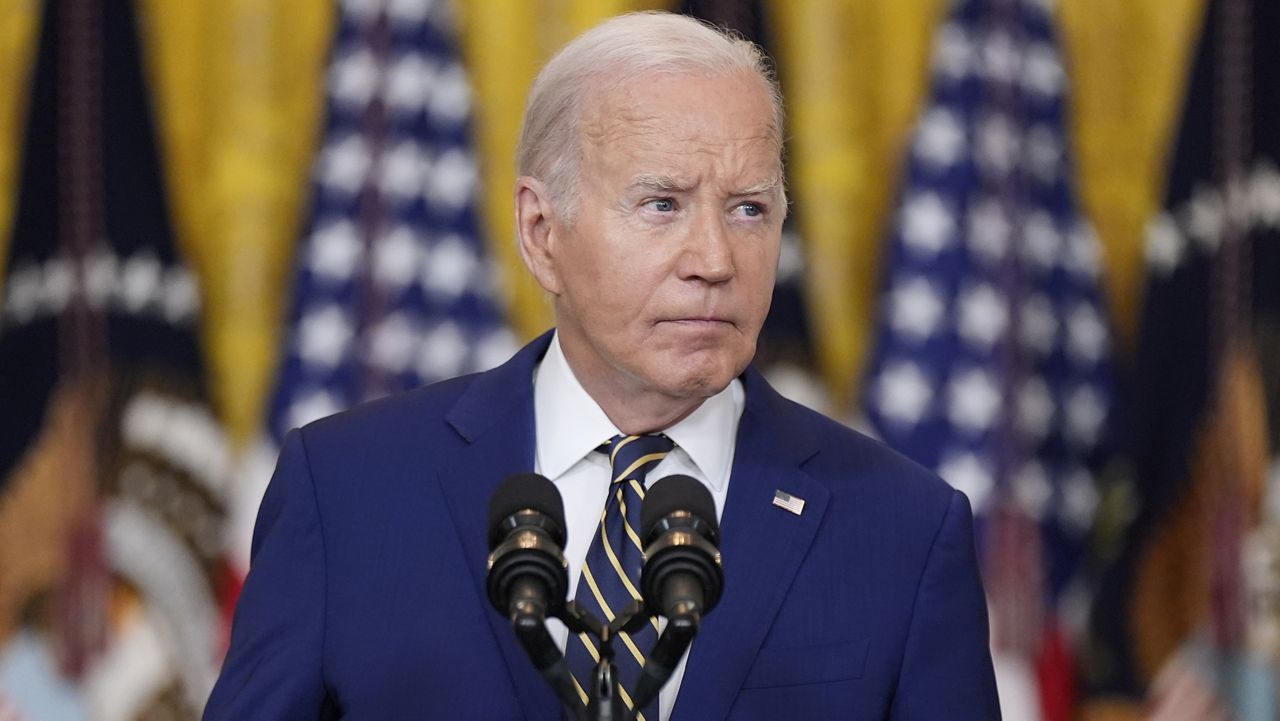President Joe Biden said people have “every reason” to draw the conclusion that Israeli Prime Minister Benjamin Netanyahu could be prolonging the war in Gaza to protect himself politically in an interview conducted days before the U.S. leader said it was time for the fighting to end.
“I'm not going to comment on that,” Biden said in an interview released Tuesday with Time Magazine when asked if Netanyahu was dragging out the war, before adding: “There is every reason for people to draw that conclusion.”
The president noted that before the war, Netanyahu was getting “blowback” for his plan to overhaul the Israeli judicial system, which included restraining the power of judges and the court’s ability to review legislative decisions. The proposal led to widespread protests in Israel and divisions within the military.
“Before the war began, the blowback he was getting from the Israeli military for wanting to change the court,” Biden said. “And so it's an internal domestic debate that seems to have no consequence.”
Asked at the end of an unrelated event at the White House Hours after the release of the interview on Tuesday whether Netanyahu was "playing politics" with the war, Biden said "I don't think so," adding he is trying to work out a "serious problem."
Biden also told Time Magazine that it was “uncertain” whether or not Israel has committed war crimes in Gaza during its now eight-month old retaliatory campaign in the Palestinian territory following Hamas’ Oct. 7 attack that left about 1,200 dead.
He also rejected the premise that Israel was using starvation of civilians as a method of warfare – something the ICC prosecutor cited in his application for the arrest warrants – while adding a caveat.
The president, however, once again made clear that he does not support a move by the International Criminal Court’s top prosecutor last month to seek arrest warrants for Israeli leaders, including Netanyahu, for war crimes and crimes against humanity related to the conflict in Gaza.
“The ICC is something that we don’t, we don't recognize,” he said.
“No, I don't think that,” Biden said of the starvation method. “I think they've engaged in activity that is inappropriate.”
A highly anticipated report by the State Department released after a delay last month found that there was “reasonable” evidence to conclude that Israel had violated international humanitarian law in Gaza without formally determining it.
Biden, who made the war-time trip to Tel Aviv less than two weeks after Hamas’ attack to warn leaders not to make the same mistakes the U.S. made after the 9/11 terrorist attacks, made clear he believed Israel was doing just that.
“I said, don't make the same mistake we did going after bin Laden. Don't try—The idea of occupying Afghanistan…” Biden told Time Magazine.
“Don't make the mistakes we made,” he added. “And they're making that mistake, I think.”
The U.S. president, however, declined to answer whether Israel crossed the “red line” he laid out in an interview with CNN last month when he said he would halt future shipments of U.S. offensive weapons to Israel if it proceeds with a “major” ground operation in Rafah – the southern Gaza city where more than a million Palestinians have taken shelter.
The White House has insisted Israel’s operations in Rafah thus far do not amount to what it considers a “major ground operation,” including after an Israeli strike that hit a civilian encampment in the city just more than a week ago left dozens of Palestinians dead.
The interview took place just days before Biden took to the White House State Dining Room to lay out a three-phase proposal that he said Israel offered to Hamas on Thursday of last week. The plan seeks to facilitate the release of all hostages and ultimately bring an end to the fighting in Gaza.
“It's time for this war to end, for the day after to begin,” Biden said during the previously unscheduled remarks at the White House on Friday.
Biden emphasized it was now up to Hamas to accept the deal but there has also been some confusion on Israel’s stance on it all in the days since.
Biden told Time Magazine that Netanyahu was under “enormous pressure on the hostages” and is “prepared to do about anything” to get them back.
Biden has faced mounting pressure internationally and from some at home over his continued support of Israel amid the war effort in Gaza as the Palestinian civilian death toll has risen and the humanitarian crisis worsened. On the other hand, other, especially following his threat to withhold certain weapons, have accused Biden of turning his back on the long-time U.S. ally.



